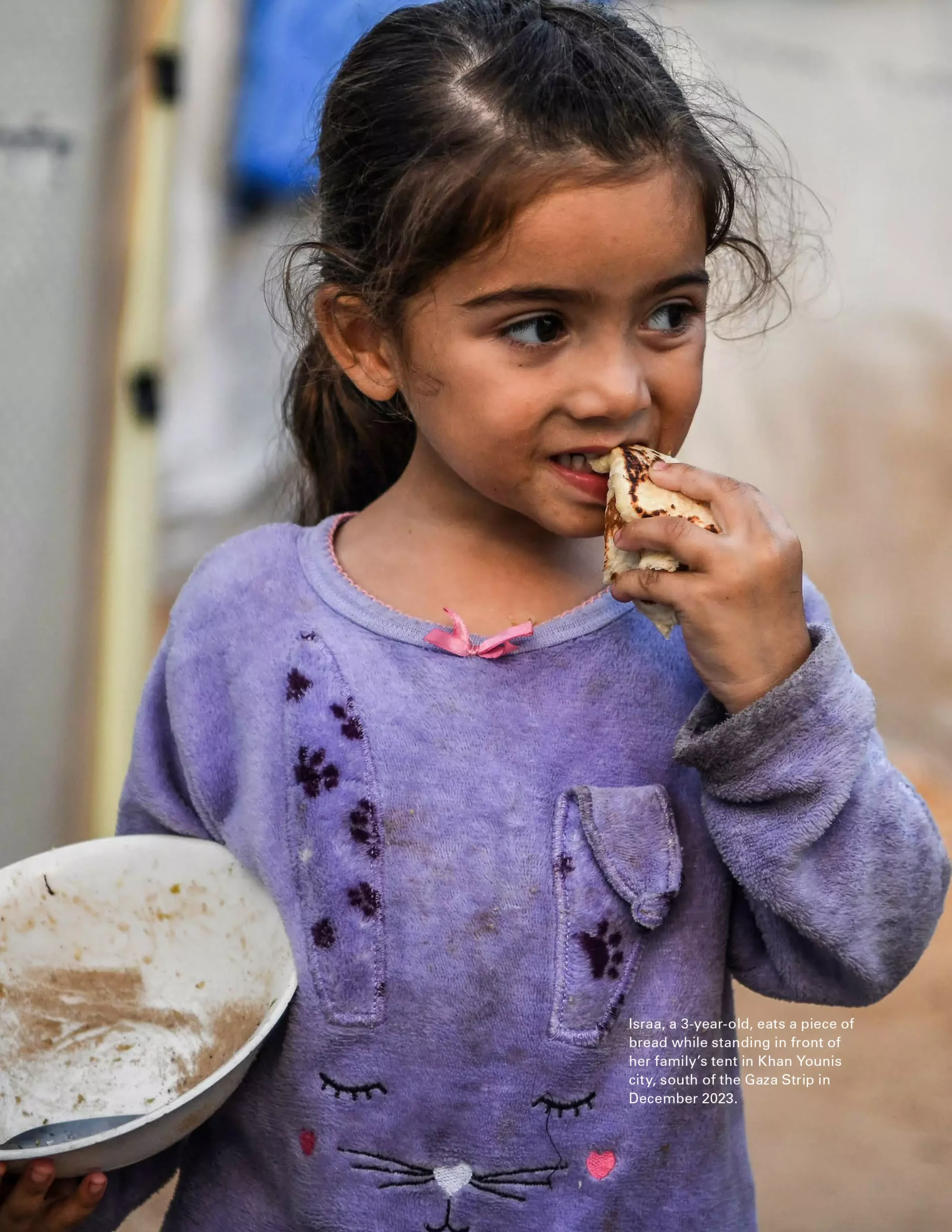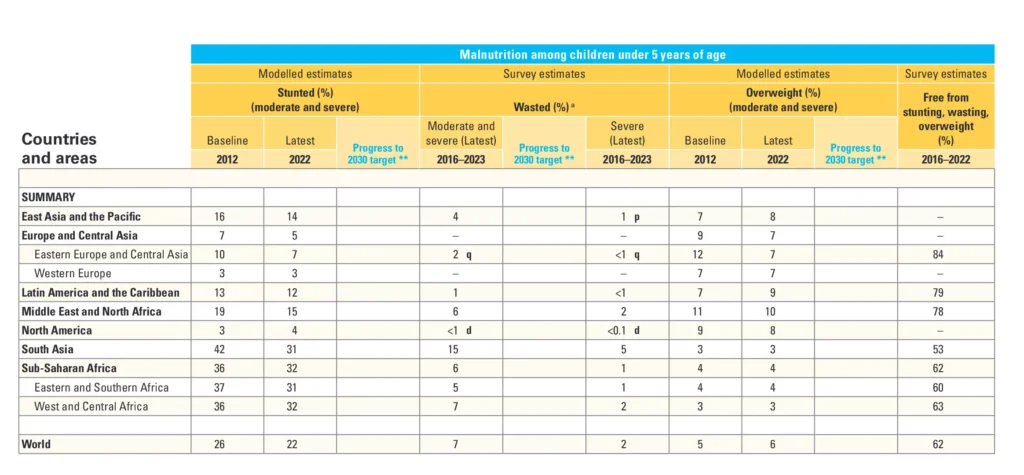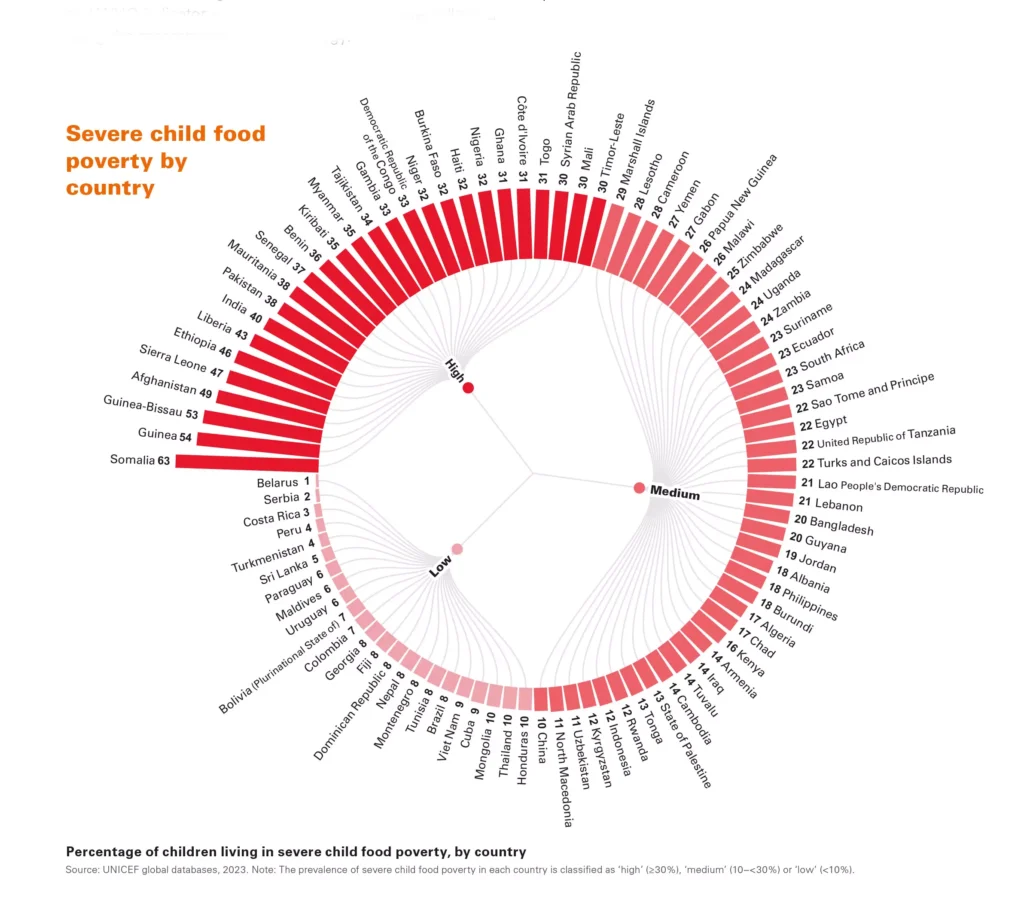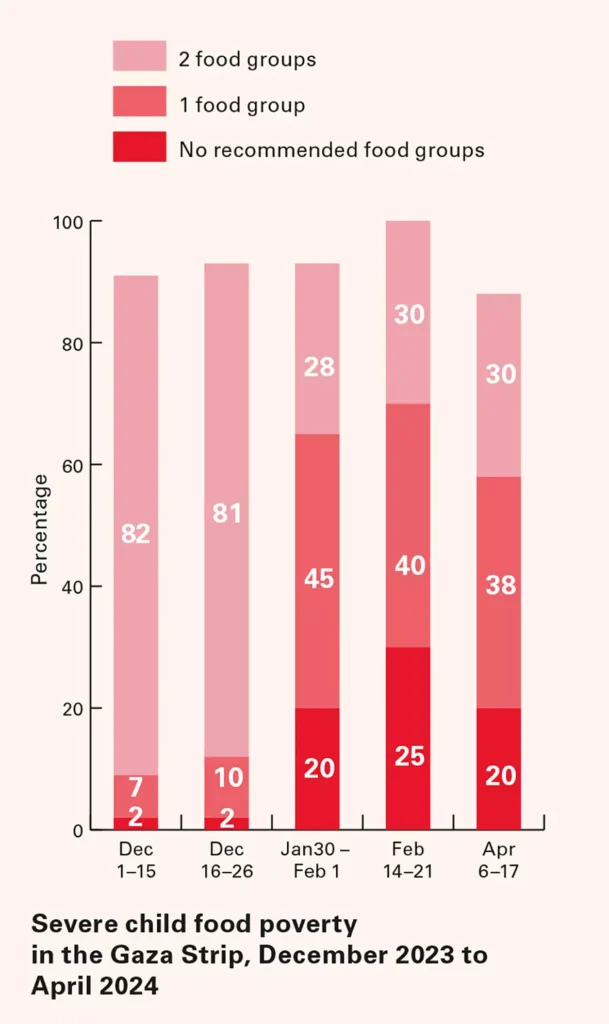
Children’s Malnutrition
The United Nations Children’s Fund (UNICEF) lately published the “CHILD FOOD POVERTY – Nutrition deprivation in early childhood” 2024 Child Nutrition Report.
The report states, that today one of four children, more concrete 27 per cent, is living in severe food poverty. Severe food poverty means that they are surviving on one or two food groups a day, and on some days even less. UNICEF calls this deprivation is alarming and highlights the deep inequalities at both global and regional levels, i.e. the world divided into oppressing and oppressed countries.
181 million children are not having the opportunity to grow, develop and learn adequately. Millions of young children are denied the nutritious and diverse foods they need. To tackle this horrific situation is according to UNICEF a policy choice and the ‘solutions’ are well known. Directly pointing on those masters of the world in America, Europe and Asia who are responsible and not willing to change.
They name the reasons: growing inequities, conflicts and climate crises, combined with rising food prices, the overabundance of unhealthy foods, harmful food marketing strategies, but as an UN organization, which means to be a tool for the sole hegemonic superpower that dominates the UNO, they do not forget to blame those who suffer by malnutrition blatantly of “poor child feeding practices”. They dare to blame: “full stomachs – not nutritious food – tend to be a priority for income-poor families”. The latter ‘reason’ we therefore will just ignore, except the fact that this practice is driven by what is advertised and supplied by the monopolies and affordable for the masses.
Who is affected? UNICEF claims that wealth or poverty of household is not the sole determinant of protecting children from food poverty but ridicules itself. We can see the numbers they present:

* South Asia and sub-Saharan Africa are home to more than two-thirds (68 per cent) of the 181 million children living in severe child food poverty.
* Twenty countries account for almost two-thirds (65 per cent) of the total number of children living in severe child food poverty: Afghanistan, Bangladesh, China, Côte d’Ivoire, the Democratic Republic of the Congo, Egypt, Ethiopia, Ghana, India, Indonesia, Myanmar, the Niger, Nigeria, Pakistan, the Philippines, Somalia, South Africa, Uganda, the United Republic of Tanzania and Yemen.

* Unhealthy foods and beverages are consumed by an alarming proportion of children living in severe child food poverty, displacing more nutritious foods from their diets. In Nepal, for example, 42 per cent of children living in severe child food poverty consume foods high in sugar, salt and/or fat, and 17 per cent consume sweet beverages.
* In the Democratic Republic of the Congo and Somalia among the lowest layers of the people, more than 80 per cent of parents report that their child had been unable to eat for an entire day because of a lack of money or other resources.
* For children in extremely fragile contexts, the percentage affected by severe child food poverty can soar to exceptionally high levels, such as in Afghanistan (49 per cent), Somalia (63 per cent), and most recently in the Gaza Strip in the State of Palestine (nine in ten children living in severe child food poverty between December 2023 and April 2024).
Somehow they seem to have a clue, analyzing “food, health and social protection systems are failing to improve physical and financial access to affordable nutritious […] these systems are ill-equipped to cope with the global and local impacts of conflict, climatic shocks and economic crises.” But their ‘analysis’ completely fails just before the facts they present themselves.
The 92 pages of the report contains the word ‘war’ – obviously some driving factor for issues feeding your kids, looking at above mentioned facts presented by UNICEF itself – exactly four times, once in the sources, and only in the context of the Russian war of aggression against Ukraine. Almost all the most effected countries in the world UNICEF lists, are war-torn or at least affected.

As bad as their analysis is their proposed salvation and as easy it is for those who want to see and listen to sum up the task to solve malnutrition of children and in general – bring an end to exploitation, plunder and war, i.e. bring an end to the imperialist world system and construct a new society.

